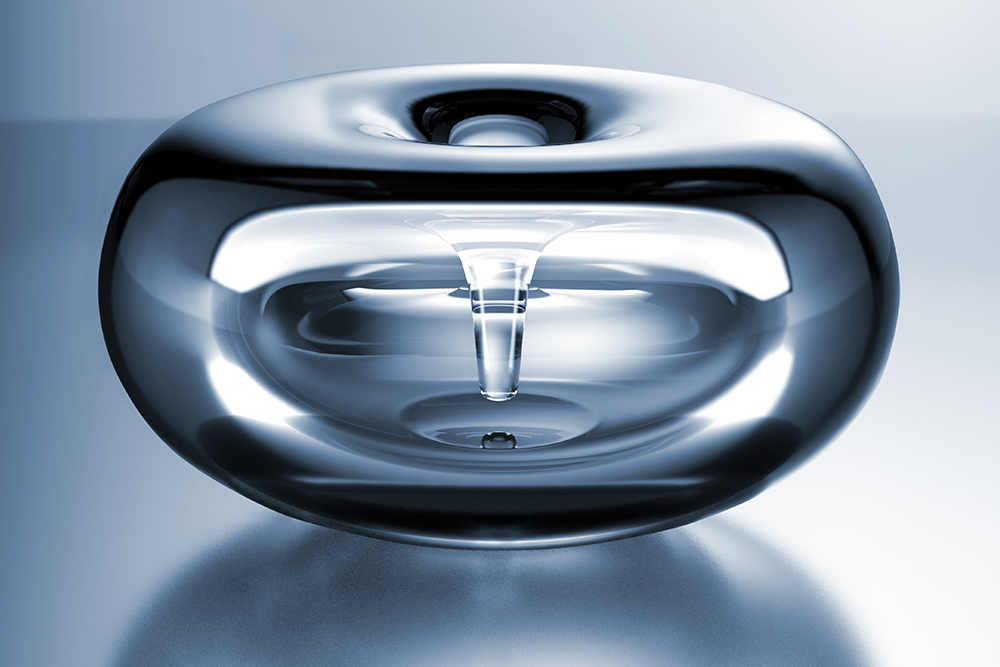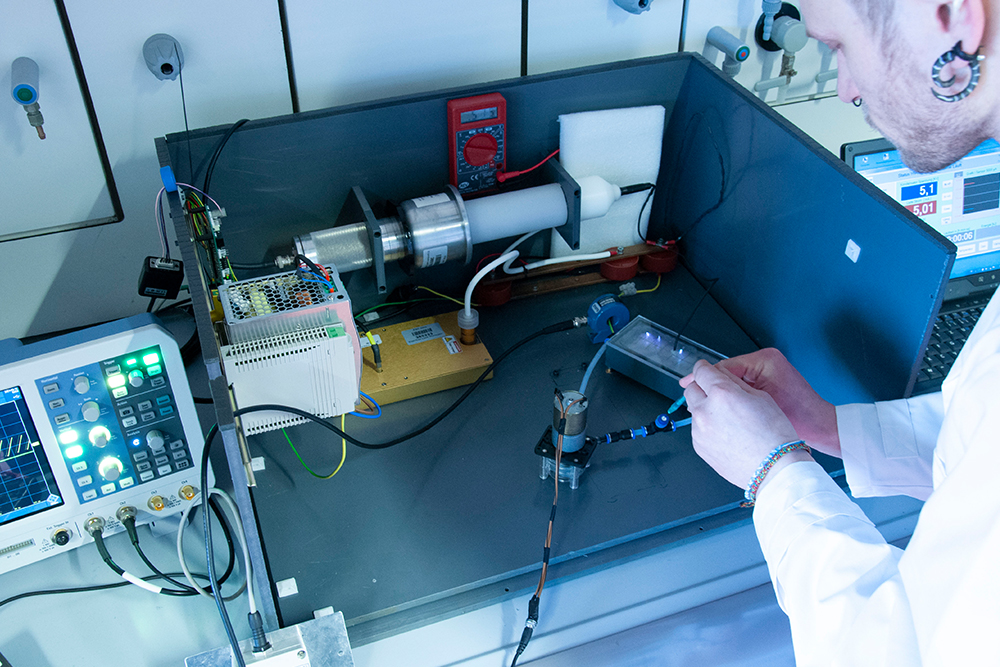

The contamination of water with new pollutants is continuously increasing. With the current state of technology, many of these emerging pollutants cannot be removed or can only be removed marginally. To protect humans and nature, new processes are therefore needed to remove all pollutants safely and cost-effectively in the future.
Fraunhofer IKTS uses innovative AOP processes (Advanced Oxidation Processes) such as cavitation processes for applications in water management. The focus is on the removal of micropollutants (e.g. residues of pharmaceuticals and industrial chemicals) as well as the continuous recording of cumulative parameters for determining water quality, which is not currently possible with existing technologies. The aim is to develop significantly more effective and energy-efficient approaches to wastewater treatment compared with the state of the art. In this way, it should be possible to remove as many organic micropollutants as possible while using only half the energy that is currently required. AOP processes can be advantageously used for the treatment of process waters in the chemical, paper, food and cosmetics industries.
Fraunhofer IKTS couples diverse hydrodynamic, acoustic and sub/stable cavitation processes and combines them specifically with adsorption and membrane processes. This results in completely new processes and reactors for wastewater treatment, which release synergy effects via specific interactions and can be modulated, i.e. adapted to different pollutant levels and volume flows in the process. In addition to the development and optimization of corresponding reactor designs, aspects such as scale-up and process control are dealt with and corresponding technical-economic analyses are carried out. Furthermore, predictive models are tested using machine learning approaches. This allows the speed and completeness of removal to be predicted even for unknown, unstudied micropollutants, as well as the in-silico design of facilities.
Cavitation-assisted processes also have advantages for the treatment of process waters in other industries such as chemicals, paper, food and cosmetics. In addition, the newly developed reactor principles can be transferred to other sensor applications and the excellent analytical methods can be used in medicine, for example.
Fraunhofer IKTS is also involved in the detection and quantification of transformation products that are formed during oxidative and reductive treatment processes via various paths and several intermediate steps. The composition and temporal evolution of the concentrations of these compounds is important for both ecotoxicity and design of corresponding processes.
Services offered
- Analysis of micropollutants (pharmaceuticals, industrial chemicals, pesticides, etc.)
- Analysis of reactive species (reactive oxygen species, radicals)
- Cavitation processes (cavitation analysis, simulation, reactor development, control) for efficient wastewater treatment, e.g. of municipal wastewater or process waters of the chemical, paper, food and cosmetics industries
- Development of customized ceramic (switchable) adsorbers
- Simulation-supported design of customer-specific reactor concepts
- Development of customized water treatment processes
- Models for predicting the rate and completeness of micropollutant removal
- Detection and quantification of transformation products
Technical equipment
- (U)HPLC with various detectors for micropollutant analysis in water
- ESR spectrometry for the determination of reactive species (ROS, OH radicals)
- Test stands for various AOP processes and combinations
- Chemical laboratories for the development of ceramic adsorbers
- Test stands for ceramic adsorbers
- Simulation (reactors, cavitation)